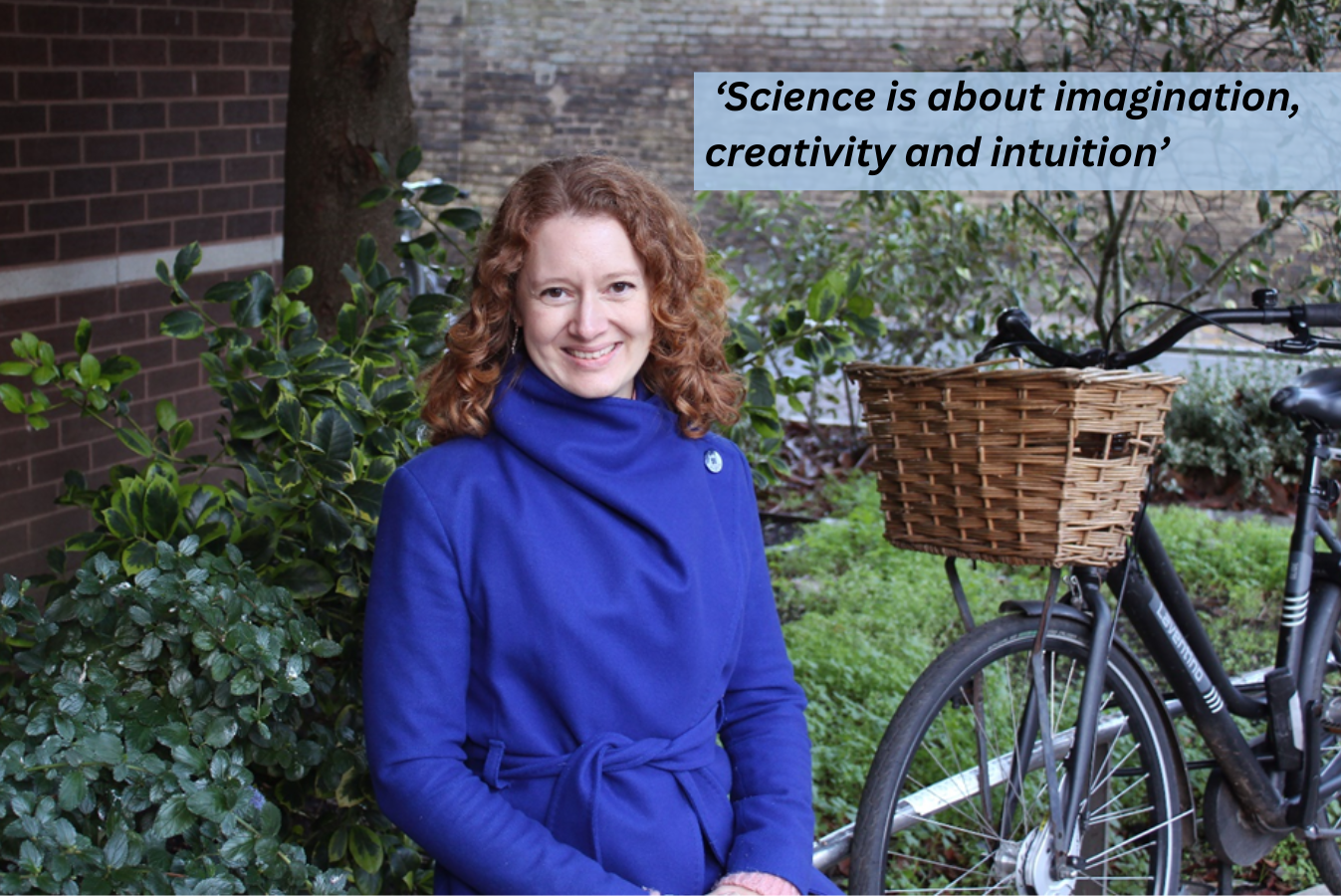An Interview with Dr Delphine Larrieu
Dr. Delphine Larrieu joined the Department of Pharmacology as an Assistant Professor in 2022. Her laboratory studies the nuclear envelope, an essential structure that surrounds the cell nucleus and that becomes dysfunctional in physiological and premature ageing. Dr Larrieu completed her PhD at the University of Grenoble, and following a successful postdoctoral stint with Professor Steve Jackson in the Gurdon Institute at the University of Cambridge she obtained a Sir Henry Dale Wellcome Trust fellowship, to set up as an independent group leader at the Cambridge Institute for Medical Research. Dr Larrieu is a co-founder of Adrestia Therapeutics and she is a scientific advisor for Shift Bioscience.
Who are you and what do you work on?
My name is Delphine Larrieu and I have recently joined the Pharmacology Department as an Assistant Professor. I am a cell biologist working on a specialised structure of the cell nucleus called the nuclear envelope. My lab is studying how the nuclear envelope is regulated and how its dysfunction causes premature ageing syndromes (Progeria) as well as contributing to normal ageing.
What do you love about your job?
I love the constant intellectual challenges and the exciting discoveries!
How/why did your research lead you to Cambridge?
I was born and raised in France, and carried out my PhD in Grenoble, working on tumour suppressor genes and DNA damage repair. After completing my PhD, I was looking for postdoc opportunities to pursue my work on DNA damage repair and I had the chance to join the lab of Prof Steve Jackson at the Gurdon Institute in Cambridge. My original plan was to stay in Cambridge for a couple of years and go back to France to set up my own lab but I loved Cambridge so much that I am still here, 11 years later!
Other than science what is most important for you in life?
I very much believe in a good work/life balance and therefore the happiness of my family is highly important to me
Do you have any advice to early-career women scientists?
Do not let the imposter syndrome take over, believe in yourself and in your ability to reach your own career goals!
Did you have to face any hurdles as a woman in science?
Unfortunately, yes. The COVID pandemic was particularly difficult, having to juggle with a newborn and another young child while trying to run the lab remotely, to apply for grants etc. That was a real challenge.
What/Who first sparked your interest in Science?
I was born at the time of the global epidemic of AIDS/HIV. I remember as a young kid, seeing magazine covers and hearing scientists talking about HIV in the news which I found fascinating. I think that what sparked my interest in Science.
When did you decide to become a research scientist?
At the age of 10, I wanted to become a botanist! A couple of years later, I decided I was more interested in Human physiology and cell biology and I probably decided to become a scientist when I was about 15 years old.
Why is science fun?
Science is fun because it's not only about intellectual and technical skills! Science is also about imagination, creativity and intuition! But it is also fun because it is collaborative and interacting with people is a great aspect of the job!
What and when was the last experiment you did in the lab?
My last experiment was about 3 months ago, I did an immunofluorescence experiment to finalise the data for a paper.
If you were to choose a laboratory superpower what would it be?
A super memory to remember all the details from publications or from the lab experiments!
How do you relax?
Reading, watching movies, cooking (and eating!).
How would you like to be remembered?
As a supportive and hopefully, inspiring mentor for all the people going through my lab!

